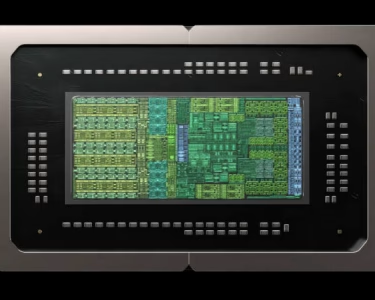Agentic AI & Neuromorphic Computing: Pakistan’s Next Software Frontier
The global software industry is entering a transformative era. Traditional machine learning is giving way to agentic AI—autonomous systems that can plan, reason, and act on behalf of humans—and neuromorphic computing, brain-inspired hardware that redefines how machines process information. Together, these technologies are being hailed as the foundation of future software trends 2025.
For Pakistan’s software industry, this frontier is not just about catching up with global innovation—it is about seizing opportunities to lead in an emerging domain that could reshape healthcare, fintech, manufacturing, defense, and education.
What is Agentic AI?
(Keyword: agentic AI Pakistan)
Agentic AI refers to AI systems capable of autonomy, decision-making, and self-directed tasks. Unlike traditional AI models that need constant prompts, agentic AI agents can:
-
Plan workflows without step-by-step human instructions.
-
Adapt to new challenges in real time.
-
Collaborate with other digital agents.
-
Execute multi-step reasoning, closer to how humans solve problems.
Think of agentic AI as the evolution of ChatGPT-style systems into AI coworkers that can handle entire business processes, from customer support to software debugging.
For Pakistan, where IT outsourcing is already a $2.6B+ industry, adopting agentic AI could mean faster project delivery, cost savings, and new service exports. Startups could build autonomous AI agents tailored for Urdu-language interfaces, fintech compliance, or telehealth.
Neuromorphic Computing Explained
(Keyword: neuromorphic computing explained)
Traditional computing relies on the von Neumann architecture, which separates processing and memory. This creates a “bottleneck” when handling massive AI workloads.
Neuromorphic computing takes inspiration from the human brain. It uses:
-
Artificial neurons & synapses to transmit signals.
-
Spiking neural networks (SNNs) that mimic biological activity.
-
Energy-efficient chips that consume far less power than GPUs.
Companies like Intel (Loihi), IBM (TrueNorth), and European research labs are already prototyping neuromorphic hardware.
For Pakistan, integrating neuromorphic computing into research universities (like NUST, FAST, ITU) could push next-gen AI innovation in robotics, cybersecurity, and smart grids.
Why Agentic AI & Neuromorphic Computing Matter for Pakistan
(Keywords repeated: agentic AI Pakistan, neuromorphic computing explained, future software trends 2025)
-
Global Competitiveness
-
By 2025, businesses worldwide will demand autonomous AI software and low-power neuromorphic hardware.
-
Pakistan’s developers must upskill to remain globally competitive.
-
-
Local Solutions
-
Agentic AI agents could automate government services, reducing corruption and inefficiency.
-
Neuromorphic chips could power low-energy IoT devices in Pakistan’s agriculture and energy sectors.
-
-
Job Creation
-
While AI often raises fears of job loss, agentic AI will create new categories of work—AI supervisors, neuromorphic hardware engineers, and ethical AI auditors.
-
Future Software Trends 2025: Where Pakistan Stands
(Keyword: future software trends 2025)
According to LinkedIn’s Future of Work Report 2025:
-
Agentic AI developers are among the fastest-growing global job categories.
-
Neuromorphic research collaborations between academia and startups are accelerating.
-
Countries investing early in these domains will dominate the global AI ecosystem.
Pakistan’s Special Technology Zones Authority (STZA), combined with increasing foreign investment, provides a fertile ground for startups experimenting with agentic AI platforms and neuromorphic-inspired solutions.
Challenges Pakistan Must Overcome
-
R&D Funding – Neuromorphic computing requires deep research investments.
-
Talent Gap – Universities must add agentic AI and neuromorphic computing courses.
-
Policy Support – Regulatory frameworks must support ethical AI adoption.
Opportunities Ahead
-
AI-Powered Urdu Agents – Agentic AI trained in Urdu and regional languages could revolutionize accessibility.
-
Energy-Efficient Data Centers – Neuromorphic chips could reduce Pakistan’s reliance on high-cost GPU clusters.
-
AI for National Security – Defense research could integrate neuromorphic sensors and autonomous AI surveillance.
Conclusion: A Software Frontier Pakistan Cannot Ignore
The convergence of agentic AI and neuromorphic computing represents more than just incremental progress—it’s a paradigm shift. For Pakistan, this is an opportunity to leapfrog in global innovation, attract foreign partnerships, and build the next generation of AI-driven startups.
By investing now in education, research, and infrastructure, Pakistan can transform from a software outsourcing hub into a global AI innovator.






